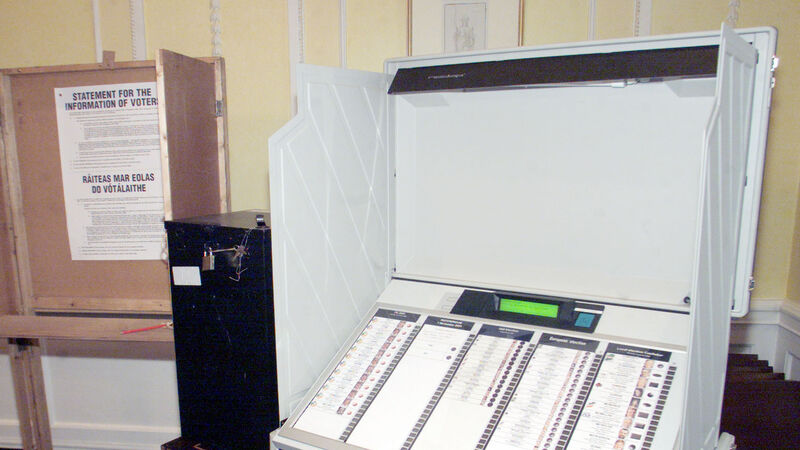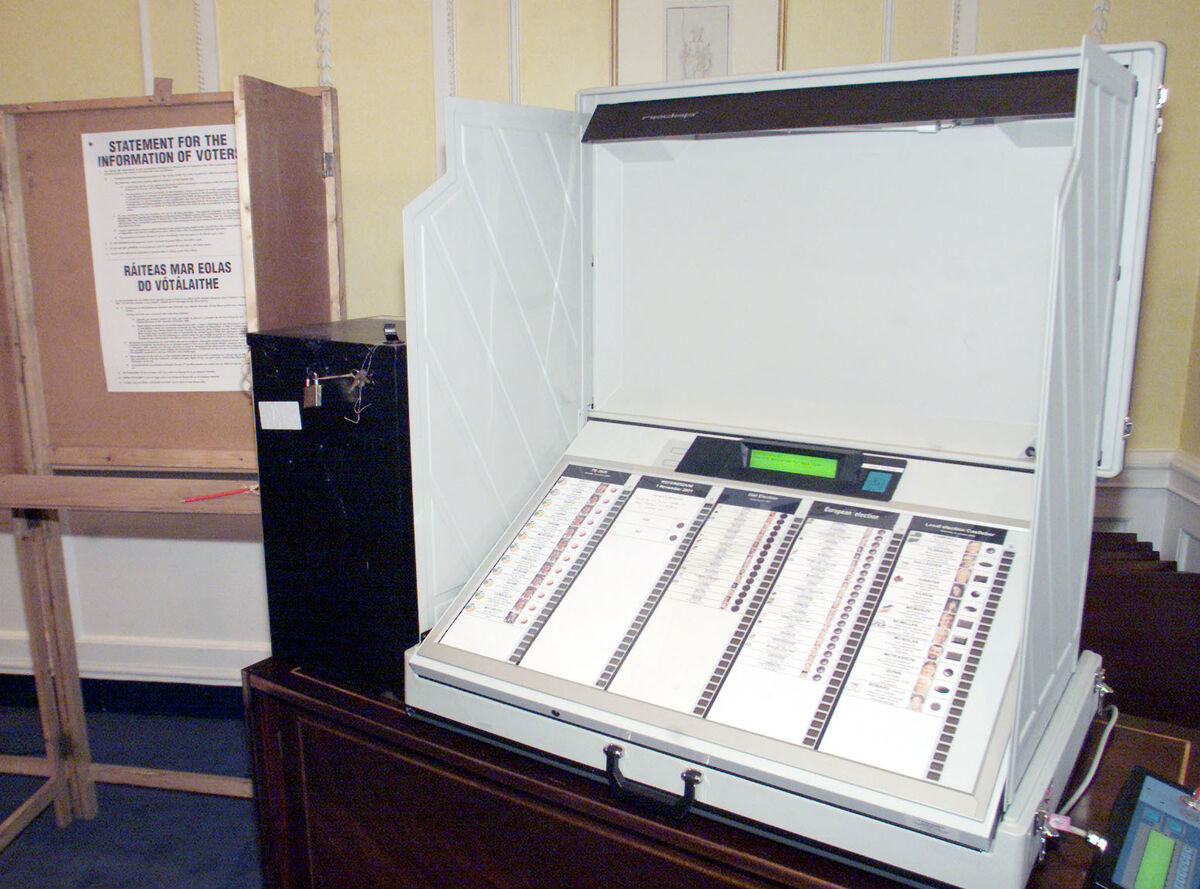Letters to the Editor: Therapeutic team should be managing patient care

An electronic voting machine in then environment minister Noel Dempsy's Meath constituency during a roadshow in April 2002 to introduce the new technology to voters. Picture: Billy Higgins/Irish Examiner Archive
Therapeutic team should be managing patient care
Reading Billy Kelleher MEP’s comments in relation to nuclear power [Time to revisit the debate on nuclear energy, says FF MEP , September 11] takes me back some 20 years to the time when politicians and IT experts were debating the merits of spending more than €50m on e-voting machines.

A series of Oireachtas committee hearings was held in late 2003 and there was a general consensus across all political parties that the Government should hold off on purchasing the e-voting machines until officials had completed testing the machines properly and the problems had been resolved.
Billy Kelleher, then a TD, was a member of that committee and he acknowledged the problems the IT experts were highlighting when he noted that “people who have given presentations to the committee have stated there is an inherent flaw in the system whereby a voting machine could move votes — one in 20, one in 40, one in 100 or one in 1,000”.
“This was stated by Ms McGaley last week. It could create difficulties,” he said.
Despite this evidence, Mr Kelleher then went on to argue that the Oireachtas committee should vote to authorise the minister to purchase the e-voting machines and that the concerns of the IT experts should be addressed after the machines were purchased.
The committee voted on partisan lines, the minister placed the purchase order, and the rest is history.

Fast forward to 2023 and Mr Kelleher is now advocating that we commit resources to nuclear technologies that energy experts tell us offer nothing but additional energy costs, excessive delay, and significantly more difficulty meeting our emissions reduction targets.
Let’s listen to the people with expertise and follow their advice before we spend the money this time.
Our Dáil committees have shown great acuity and incisiveness interrogating RTÉ and that is how it should be. You do have to hand it to the politicians — they can turn their hand to anything. Turns out they’re a talented bunch.
One very important point was made by Ian Kehoe at the Oireachtas media committee this week. RTÉ’s news and journalistic staff have interrogated RTÉ management without fear or favour throughout this sorry saga and that is something no one should overlook. No other large and powerful institution does or allows this.
For a very long time in this country, when a large, powerful institution does wrong or comes under scrutiny the word goes out: “Circle the wagons and crush all dissidents and dissenters.”
I am not naive. There are bound to be skeletons in the closet even the most seasoned journalist will avoid. But, by and large, RTÉ’s staff have interrogated their employer assiduously, fearlessly, and thoroughly. It is an important thing for us to notice. Show me one other large and powerful Irish institution that does, allows, or supports that.
RTÉ is in a shambles. Its management obviously has some corporate governance skeletons crammed and rattling in its closet. However the “staff” have demonstrated RTÉ’s worth and value in abundance since the mushroom cloud appeared — and they should be protected from the fallout.
CLIMATE & SUSTAINABILITY HUB










